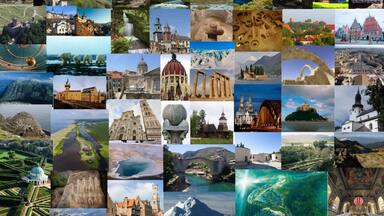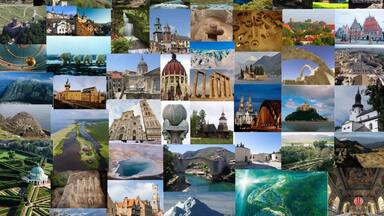The preparation of the next regional action plan for the implementation of the World Heritage Convention in Europe and North America has been launched, starting with Southeast Europe
Meeting in Kotor (Montenegro), in the heart of one of the first World Heritage properties, Natural and Culturo-Historical Region of Kotor, on 24 and 25 October 2023, the national focal points for the implementation of the World Heritage Convention and the representatives of the national cultural and natural heritage institutions of Southeast Europe took stock of the implementation of 2015 Helsinki Action Plan, discussed the preliminary findings of the Third Cycle of Periodic Reporting, which concluded in July 2023, and defined the sub-region’s aspirations for the regional action plan for Europe and North America for the next six years.
The event was jointly organised by the UNESCO World Heritage Centre and the UNESCO Regional Bureau for Science and Culture in Europe and was made possible thanks to the generous contribution of the governments of Ireland and Italy. It brought together participants from 14 countries from South-East Europe: Albania, Bosnia and Herzegovina, Bulgaria, Croatia, Cyprus, Greece, Malta, Montenegro, North Macedonia, the Republic of Moldova, Romania, Serbia, Slovenia and Türkiye.
In her opening remarks, Maša Vlaović, Minister of Culture and Media of Montenegro, welcomed the scope of the initiative and reconfirmed the country’s commitment to the principles of the World Heritage Convention, recalling the opportunity offered by the recent 50th anniversary of the Convention to envisage the next 50 years of safeguarding world heritage as a source of resilience, humanity and innovation.
The Mayor of Kotor, Vladimir Jokic, also welcomed the relevance of the event in raising awareness about the importance of the World Heritage and in discussing the challenges that sites and local authorities often face in the day-to-day protection and promotion, underlying their firm commitment to ensuring the sustainable use of the World Heritage status.
Government representatives from Ireland and Italy were also present. James Hagan, Deputy Head of the Ireland Mission in Budapest, affirmed in particular Ireland’s commitment to regenerative tourism strategies and participatory approaches to heritage protection, while underlining the significance of Periodic Reporting as one of the core monitoring mechanisms for the World Heritage Convention and its ability to inform long-term strategic and collaborative decision-making.
Periodic Reporting is an effective mechanism for implementing the World Heritage Convention, but also as a platform for reflection on global challenges such as the impact of climate change and biodiversity loss, and for identifying collective, interdisciplinary and innovative responses.
Opening speeches on 24 October 2023 @ UNESCO / Haris Mekic
The workshop enabled participants to discuss in detail thematic priorities for specific to the sub-region, such as the importance of ensuring structured, participatory and transparent approaches to the identification of cultural and natural heritage, the strengthening of the role of Tentative lists as active protection mechanisms, the enforcement of the World Heritage Convention’s provisions into national legal and regulatory frameworks as well as the effective implementation of World Heritage properties’ Management Plans and their integration into broader planning frameworks. Participants also discussed the need to identify sustainable tourism management strategies and approaches that are compatible with the protection and preservation of World Heritage properties, as well as the development of synergies and exchanges with different stakeholders in the development of disaster risk management plans for climate change mitigation and adaptation.
Over the course of two days, participants, who regularly highlighted the challenges they face in managing existent and new threats to heritage preservation, were also introduced to new tools developed by UNESCO World Heritage Centre and the Advisory Bodies to the World Heritage Committee for more effective implementation of the World Heritage Convention, such as the Wind Energy Guidance for Wind Energy Projects in a World Heritage Context, the Guidance and Toolkit for Impact Assessments in a World Heritage context, and the soon-to-be-released Enhancing our Heritage Toolkit 2.0.
The findings and outcomes of this workshop will feed into the discussions that will take place from 19 to 21 December 2023 at the UNESCO Headquarters during the meeting of the national focal points for the implementation of the World Heritage Convention from the whole Europe and North America region. In this context, the workshop held in Kotor (Montenegro) was a decisive step in ensuring that the priorities of Southeast Europe are reflected in the regional action plan to be presented to the World Heritage Committee in 2024.


